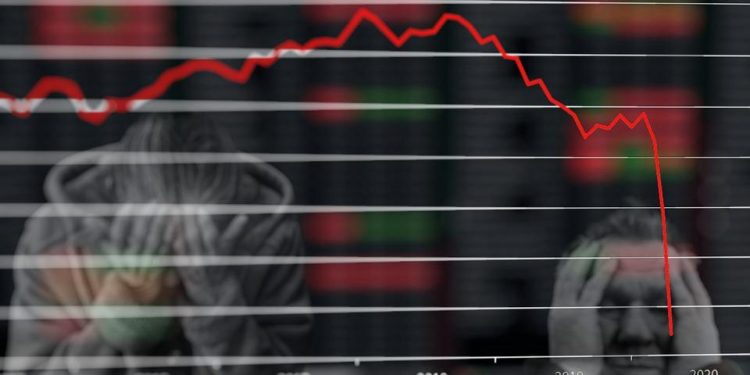Trading the stock market during a time of recessions is challenging, even for those with a long track record in this sector. Economic activity naturally contracts, and figuring out which companies are able to overcome this temporary situation can be a bit complex – especially for traders with little experience.
Right now there is increased chatter about a potential recession occurring in late 2022 or early 2023. Whether or not this forecast will turn into reality, many market veterans are already bracing themselves for any occurrence. Here are a few pointers you should be aware of in advance.
Repricing the P/E ratios
During a time of economic expansion, confidence is built up among traders, making them more eager to buy shares in general. Companies that display impressive revenues attract stockholders looking to take advantage of rising prices, and even dividends in some cases.
One of the key metrics for evaluating the price of a stock is the Price/Earnings (P/E) ratio. When there is an expansion, this indicator tends to go up, while when an economic downturn takes place, P/E normally contracts.
As a trader, you should be aware that such contraction periods can be represented by large drawdowns in share prices. Hence, this is a good time to reduce exposure to vulnerable companies, or if possible, to use derivatives that allow you to take advantage of bearish moves (in other words, to sell short).
Companies with high P/E ratios are the most vulnerable when a recession comes, especially if revenue falls by a wide margin – they have more to lose. Bad news is a bearish sign for all sectors, but once the market gets accustomed to the idea of a recession, investors start searching for value pretty quickly. Thanks to a variety of trading apps from brokers like easyMarkets, Etoro, Oanda and more, anyone can get involved easily and seize the opportunities arising – even in times of economic stagnation.
Market participants focus on defensive sectors
A defensive sector is one that tends to outperform others in times of recession, mainly because the recession does not affect it. For example, shares of companies selling necessities like food and household items (called consumer staples) will perform as usual even when the economy is not looking great, because people will continue purchasing these things, regardless of the situation.
As a rule of thumb, a shift towards a defensive sector is a good indicator that the economy is undergoing a recession. This might be a good time to follow the crowd and shift towards defensive sector shares as well.
Deflationary or inflationary recession?
Another important factor to assess when thinking about the impact of a recession on the stock market is whether it is an inflationary or deflationary recession. What does this mean? Basically, the question is whether the recession was caused by a drop in supply or demand. When supply drops (inflationary), prices are set to rise, but when demand drops (deflationary), prices go the opposite direction.
In the case of a deflationary recession, it would be a good idea to hold on to cash until a new business cycle starts. On the other hand, an inflationary recession means cash will continue to lose purchasing power, so holding on to the money you have is wiser.
Right now the whole world is facing high inflation, but if a recession occurs, structural differences (trade surplus/deficit, debt/GDP ratio, or interest rates movements) can determine whether a country slips into deflation. In that case, of course, the purchasing power grows and it might be a good idea to let go of cash.


